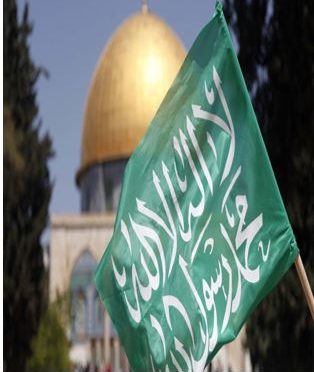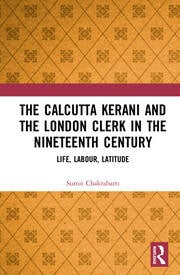A Rethink or Much Ado About Nothing?
Posted on : May 6, 2017Author : Admin2

On Monday, 1 May 2017, Hamas presented a document (‘Document of General Principles and Policies’) that agreed to the creation of a Palestinian state along the 1967 borders, proclaimed Jerusalem as ‘a permanent right,’ and as the eternal capital of Palestine, professed to sever links with the Muslim Brotherhood and explicitly reiterated its support for the Right of Return for Palestinian refugees. The document however retained Hamas’ policy of non-recognition of the state of Israel with the specification that Zionism is the adversary and not the Jews, connoting that the conflict is not a religious one. The official pronouncements were made in Doha by Khaled Meshaal, the leader-in-exile of Hamas that administers the Gaza Strip. The professed intention of the new charter is to make Hamas ‘a dynamic and open organisation,’ adopting a moderate stance and ‘open to dialogue and compromise.’ The document is in contrast to the Charter of 1988 (‘Covenant of the Islamic Resistance Movement’) that called for the (re) possession of all of mandate Palestine, including what constitutes contemporary Israel though it does not state that it intends to abandon its aim of ‘liberating all of Palestine.’ It stops short of accepting the ‘two-state’ solution. The document overtly clarifies that Hamas’ contention is with the ‘Zionist project’ and not with the religion of Judaism, clearly demarcating between those who practice Judaism and ‘Zionist Israeli citizens who occupy Palestinian lands.’ In a significant departure from the previous charter, the present document categorises Hamas as an independent entity, thereby disassociating itself from the Muslim Brotherhood. The document rejects the Balfour Declaration, the British Mandate Document, and the UN Palestine Partition Resolution. Thus, the establishment of ‘Israel’ is completely illegitimate and violates the undeniable rights of the Palestinians, human rights in general and the right to self-determination in particular. The Oslo accords are rejected as being detrimental to the interests of the Palestinian people as any ‘transgression against the Palestinian people, usurping their land and banishing them from their homeland cannot be called peace.’ The liberation of Palestine and resistance against occupation is viewed as the ultimate objective of not only the Palestinians but also of the Arab and Islamic Ummah in general. It calls for the creation of a ‘fully sovereign Palestinian State on the entire national Palestinian soil, with Jerusalem as its capital.’ It also advocates the preservation, development and recasting of the Palestine Liberation Organisation(PLO) as a democratic representative framework for resisting occupation and fulfilling the aspirations of the Palestinian people. The role of the Palestinian Authority (PA) and its independence in the decision making process, the role of civil society institutions, eminent personalities and particularly women ‘in the project of resistance, liberation and building the political system,’ has been highlighted in the document. The charter states that Hamas considers the Palestinian issue as the central cause for the Arab and Islamic Ummah. The liberation of Palestine is regarded as rightful and Hamas ‘rejects the attempts to impose hegemony on the Arab and Islamic Ummah.’ The charter explicitly states that Hamas ‘condemns all forms of colonialism, occupation, discrimination, oppression and aggression in the world.’ The document does not identify Hamas as a ‘ruling party,’ but rather as a ‘resistance movement.’
The document has been subject to multiple analyses since its release and the general perception is that it aims at re-situating Hamas in the context of Palestinian and Arab politics and that it is not intended at making concessions to Israel as it continues to be derecognised or for that matter the international community at large as previous accords facilitated by it are rejected as being unjust. It is apparent that the document is not intended at pleasing Israel or Israelis as it assumes that there is no ‘religious, emotional or historical affinity’ with the land. The Zionist project is seen as targeting not only the Palestinians but the Arab and Muslim world at large and there is no clear demarcation between ‘Jews,’ ‘Zionists,’ ‘Israelis’ or ‘colonialists.’ In questioning the legality of the Zionist project it appears to negate the existence of a million people who consider themselves as Israeli Jews and have no other place to go. The document primarily appears to be targeted at the Palestinian people, the Arab and Muslim states and the popular movements in the West that have empathy towards and stand for the Palestinian resistance to occupation. The document, however, affirms Hamas’ ability to introspect and be discerning with regard to criticism. The foremost criticism that has been levelled against the Hamas is that it has served a ‘foreign agenda’ rather than being a Palestinian national movement as the charter of 1988 describes Hamas as a ‘religious Islamic resistance movement and a branch of the Muslim Brotherhood.’ The new document addresses the lacunae with the statement that Hamas is a ‘Palestinian Islamic national liberation and resistance movement’ aimed at ‘liberating all of Palestine’ and combating ‘the Zionist project,’ and is independent of the Muslim Brotherhood. The phrase ‘liberation of all of Palestine,’ indicates that the acceptance of a Palestinian state within 1967 borders does not seem all that remarkable or path breaking when viewed in this perspective. However, even though the distinction between Zionists and the Zionist project on the one hand and Jews, on the other is seen as a significant departure as the conflict is no longer viewed as a religious one, the Islamic framework remains intact, authority continues to emanate from Islam and Palestine remains an Arab and Muslim land. Moreover, the connection between Zionism and Jews is complicated and multi-layered, Zionism being another name for ‘Jewish Nationalism.’ The professed disassociation with the Muslim Brotherhood is being attributed to realpolitik, as an attempt by Hamas to pacify the current Egyptian dispensation keeping in mind the importance of the Gaza-Egypt border for trade and security reasons in particular. The attempt at moderation may be the result of pressure from Saudi Arabia and Qatar, in a bid to display their credentials as influential regional powers further indicating the constraints within which Hamas operates. Then again, a moderate Hamas could spell trouble for an already beleaguered Palestinian Authority (PA) as their ‘platforms appear to be growing closer.’ Conversely, the new document continues to back ‘armed resistance’ giving rise to apprehensions that its core values remain the same. The timing of the release of the document may be significant as Khaled Meshaal hands over the baton to the next generation of militant leaders to carry the movement forward. The acceptance of the document by the younger militant group indicates their approval of the new charter at the same time making it obvious that it has not been imposed by the moderates within the organization. Yet, the restrained and accepting tone of the document may actually dishearten the many Palestinians, who have become wary of the misdemeanors and multiple maneuvers of the Fatah, PLO and the PA and back the movements for boycott, divestment, armed resistance, sanctions against Israel and the establishment of a single-state. For them, post 2017, there would be not much to choose between Fatah and Hamas.
Priya
6/5/2017
For previous reflections, click here.




